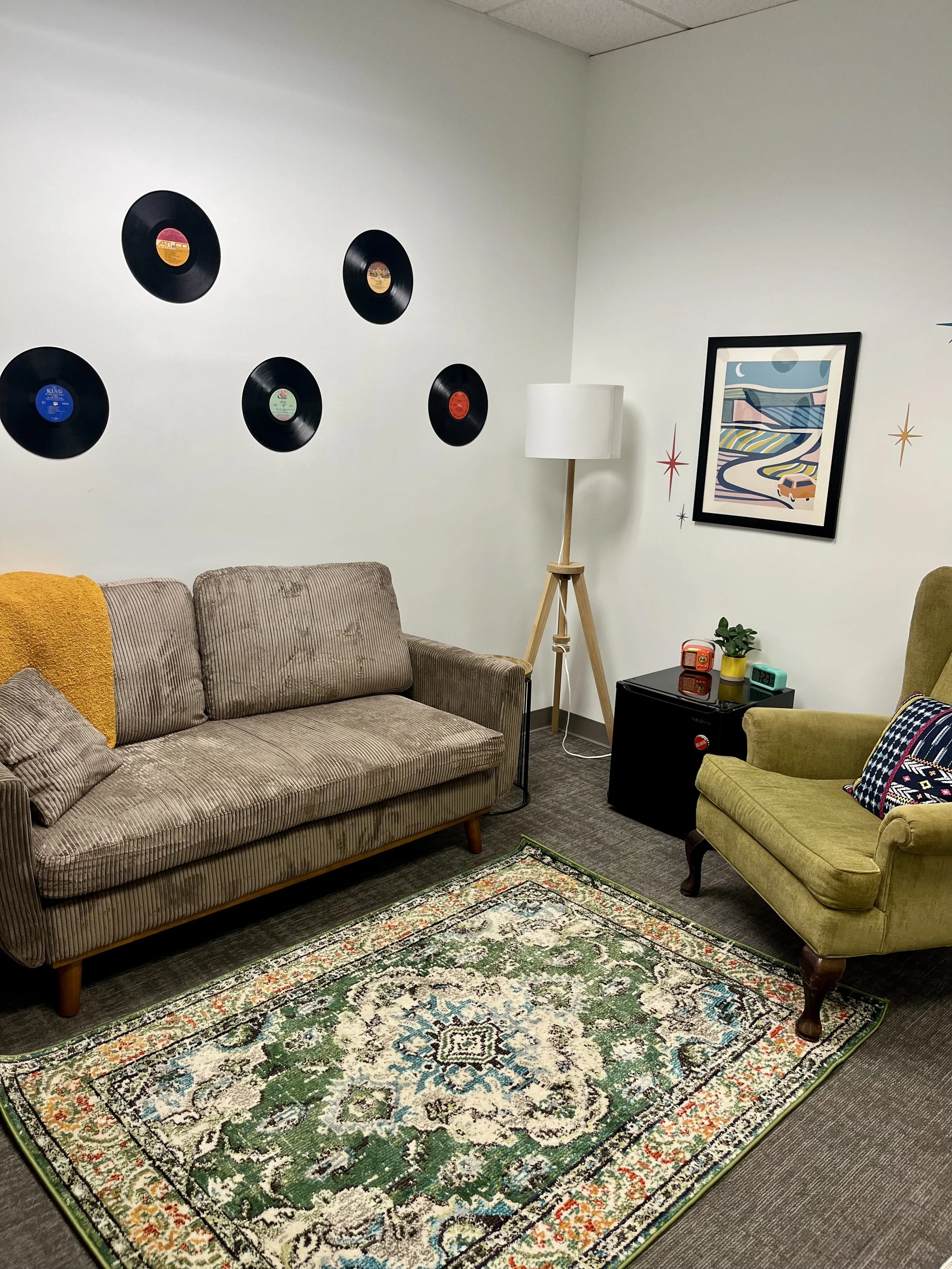About the Practice
Wanna feel Groovy?
Whether you need help coping with life’s challenges or managing relationships, therapy can be the place to start creating change!
Feeling Groovy Mental Health focuses on women’s issues from a culturally sensitive perspective. We strive to empower clients to feel confident in shaping the life they’ve only imagined while being mindful of societal and cultural influences.
Although we do not exclusively work with women of color, our work is guided by gender and culturally informed perspectives.
Our Values
-
This practice strives to take a groovy approach to the counseling experience! Although therapy can at times be painful, with patience and commitment we hope to restore feelings of happiness and calm to your life. Most importantly, we want you to enjoy the time you set aside for yourself and continue prioritizing self-care for a lifetime.
-
We promise to create a genuine space to get real about our mental health care. Being comfortable to share our personal life, interests, and flaws takes time but can have a major impact on our everyday experiences.
-
Being sensitive and understanding of your worldview is a core value of our practice. By having a delicate appreciation of others' feelings, we can begin to learn about how your unique experiences influence who you are.
-
We want our work to make a lasting impact on our clients and the community at large. We aim to change the perception of mental health care in communities of color and normalize self-care. This will hopefully minimize the transgenerational impact neglecting health has on these communities.
Ashley Calhoun, LPC,LMHC,NCCMeet the Therapist
Ashley is a board-certified, Licensed Professional Counselor serving clients in Georgia, Florida and Texas. After studying psychology at Howard University, she completed her Master of Education in Counseling in her hometown of Houston, Texas. During her professional history, Ashley has assisted young adults and families in community, academic, and in-home settings.
As a clinician, she’s had the honor to see how impactful therapy can be in changing people’s daily lives. But historically it’s known that many minorities receive inferior care for both their physical and mental health, resulting in transgenerational concerns. As a therapist of color, she feels an obligation to normalize the process of seeking mental health support within minority communities and to educate them on strategies to support their overall wellness.
Her work typically includes issues around self-discovery, building confidence and mood management. As a former athlete, she tends to be goal orientated and works to help build tangible steps for change.
Theoretical Orientations
-
Person-Centered
This therapy encourages positive change by encouraging self-reflection. The therapist provides a space for deeper insight while maximizing your ability to create solutions. Nobody understands your experience better than you and we want to use this valuable information.

-
Cognitive-Behavioral
CBT is based on the idea that how we think, feel and act are directly linked. By becoming aware of our negative thoughts, we can analyze behavioral patterns that have reinforced these unhealthy patterns. This approach helps people to develop alternative ways of thinking and behaving.

-
Solution-Focused
This goal-oriented approach emphasizes solutions rather than dwelling on problems. We'll look at what you want to be different and explore times when things have been better. Together, we'll create a plan of action to help you reach your desired outcome.

Our Office
Located in the Waterstone Office Building
For your convenience, we offer gated parking that's monitored by our security team.
Bring your parking ticket to the office for a free validation sticker!



